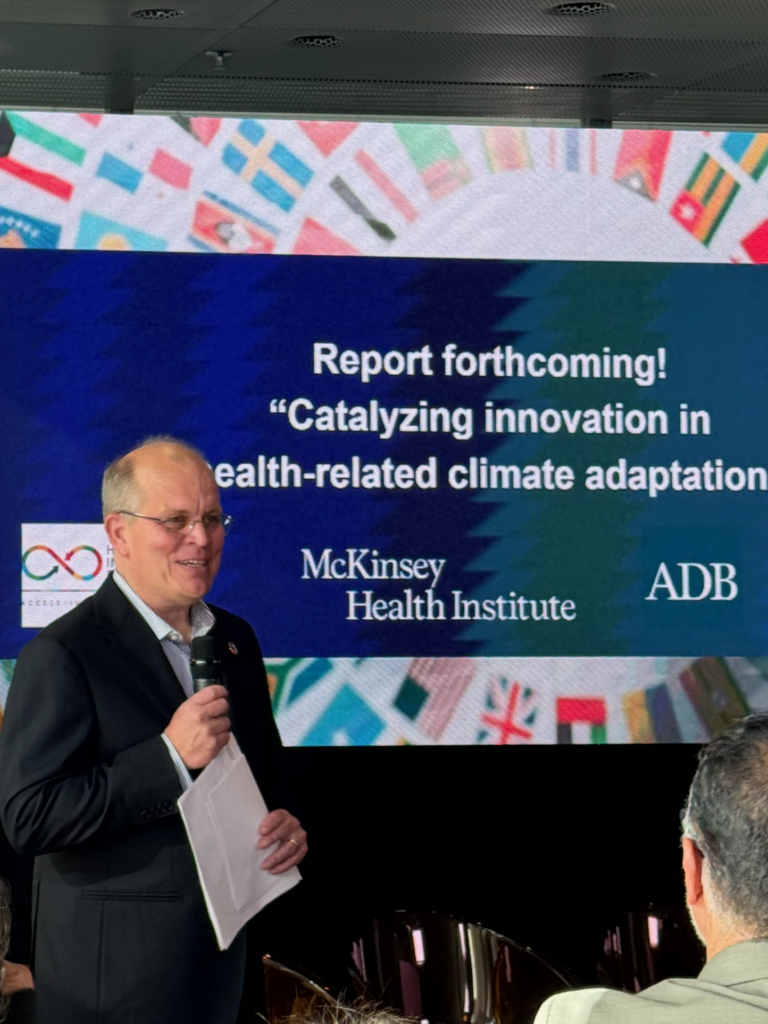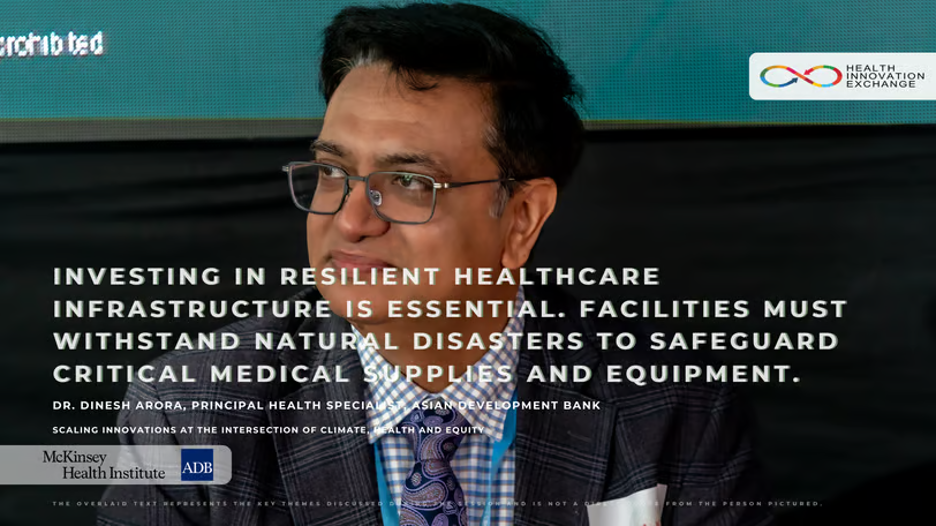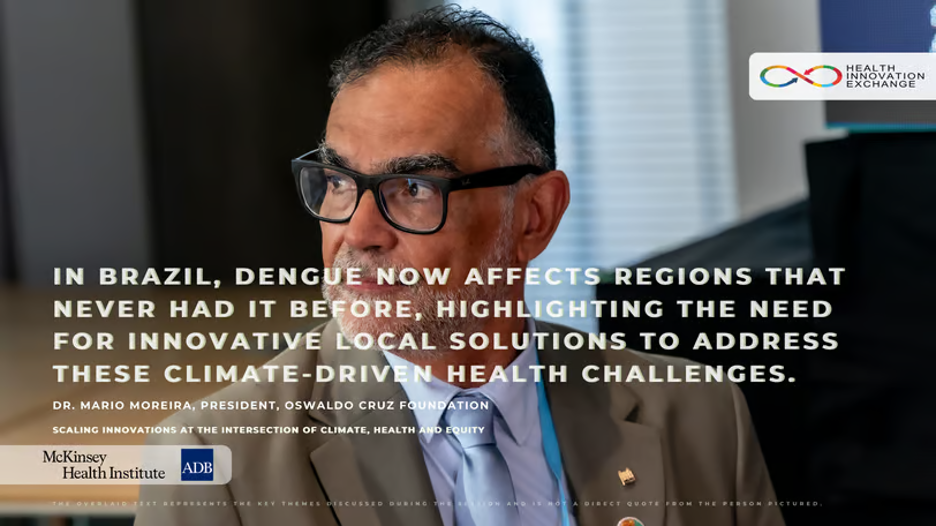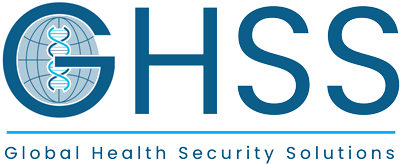
At WHA 77, GHSS partnered with the United Nation’s – borne Health Innovation Exchange (HIEX) and the McKinsey Health Institute (MHI), to host “Convergence: Scaling Innovations at the Intersection of Climate, Health, and Equity” a session alongside the World Health Assembly in Geneva. The workshop convened 50 climate and health leaders for a dialogue on how we might advance comprehensive adaptation strategies to address the impacts of climate on health and provided a preview of our forthcoming report looking at innovations and case studies in health-related climate adaptation.

We heard from leaders across the field, including Pradeep Kakkattil of Health Innovation Exchange – HIEx, Mario Moreira (President of FIOCRUZ – Fundação Oswaldo Cruz) Dr Dinesh Arora, Jae Kyoun Kim and Ben Coghlan (Climate and Health Leadership of the Asian Development Bank (ADB); Karlee Silver, CEO of Grand Challenges Canada; Josh Karliner, Director of International Programs, Health Care Without Harm; Angela Chaudhuri, CEO of Swasti, Vincent Bretin of Unitaid, and Dr Lúcia Souto of the Ministry of Health, Brazil.
Key Themes and Discussions
Climate Change and Health: The critical impact of climate change on health was emphasized, with climate adaptation becoming essential in public health responses. Disparities in life expectancy were highlighted, with Switzerland averaging 86-87 years and the lowest life expectancy countries averaging around 51 years. The 35-year difference underscores the vulnerability of certain populations to climate change.

Global Health Challenges and Solutions: Mario Moreira from the Oswaldo Cruz Foundation discussed Brazil’s challenges with dengue, now affecting regions previously unaffected due to climate change. The recent floods in Rio Grande do Sul, Brazil, were mentioned as a case study of the devastating impact of climate change on health. These floods resulted in 169 fatalities, displacing over 227,000 people, and triggering outbreaks of waterborne diseases.
Strategies for Climate-Resilient Health Systems: Emphasis was placed on the need for resilient healthcare infrastructure, including elevated construction in flood-prone areas and stockpiling of essential medications and vaccines. Innovation in supply chains, with diverse transportation methods, was highlighted as critical for ensuring continued medical supply delivery during extreme weather events.
Collaboration and Innovation: The session underscored the critical importance of cross-sector and interdisciplinary collaboration, highlighting the Asian Development Bank’s pivotal role in spearheading climate and health initiatives. The upcoming G20 summit under Brazil’s presidency was mentioned as a platform to build on commitments to climate and health.

Key Takeaways
The session concluded with a powerful call to action, imploring all stakeholders to engage proactively in climate and health initiatives. The discussions highlighted the urgent need for innovative solutions and strategic investments to build a climate-resilient health system. Emphasis was placed on the importance of fostering collaboration across sectors to drive impactful change.
Participants were encouraged to leverage their unique capacities to innovate in medical products and technologies, enhance surveillance and early warning systems, and strengthen healthcare infrastructure and supply chains. The collective goal is to develop robust, sustainable health systems that can withstand the increasing pressures of a changing climate, ensuring equitable access to care for the most vulnerable populations. This rallying cry underscored the session’s commitment to translating dialogue into concrete, scalable actions that advance both health and climate resilience.

